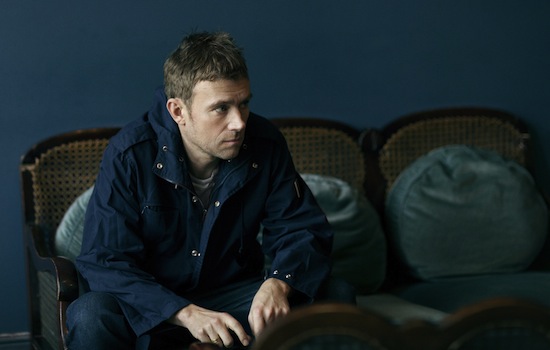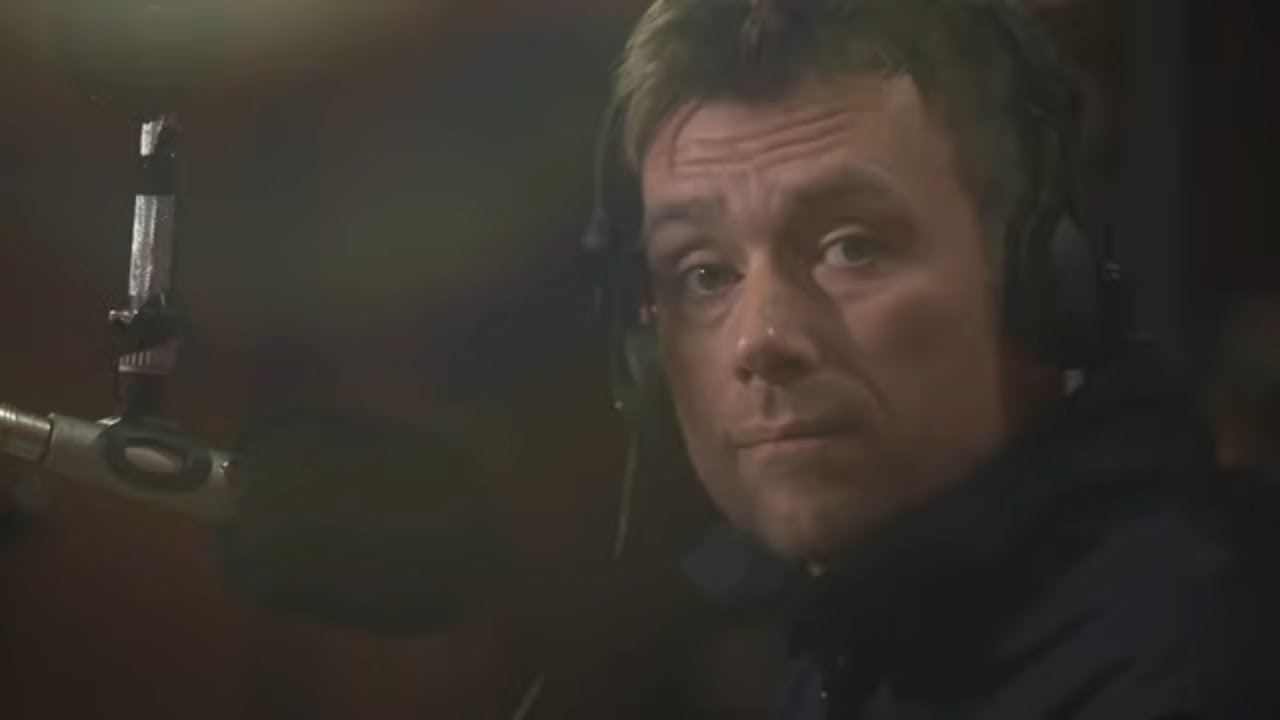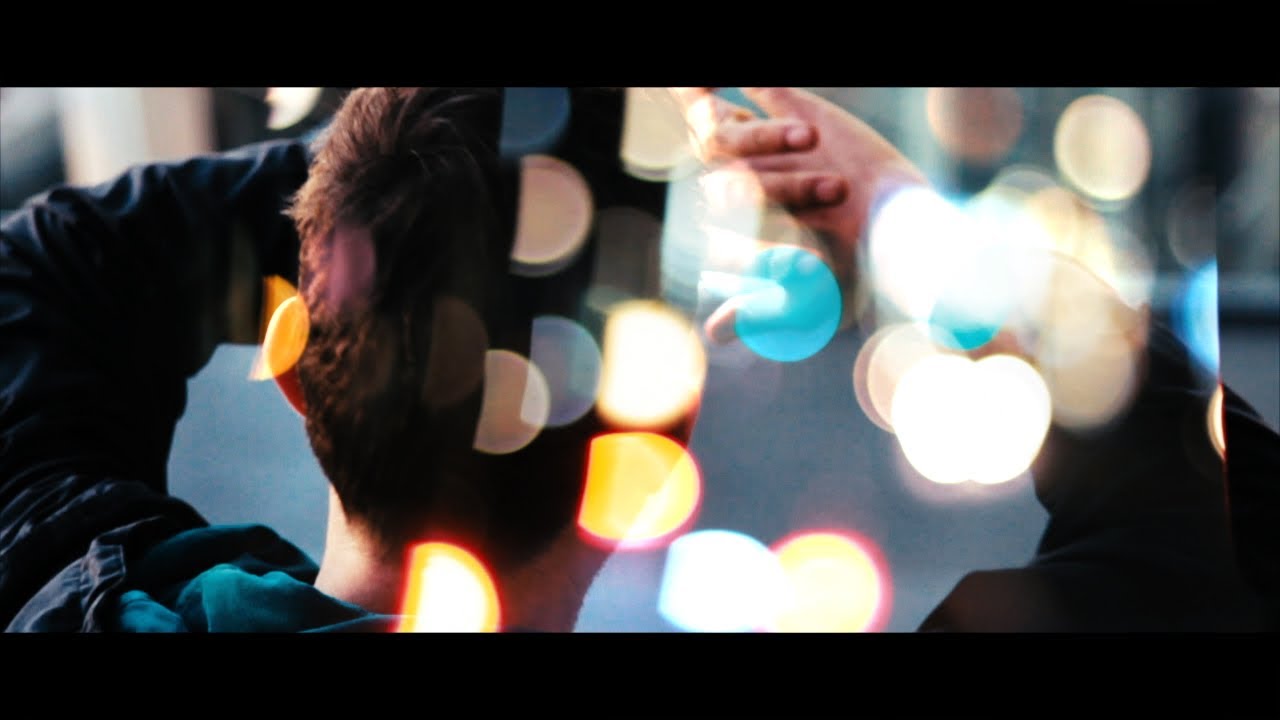"It depends how you’re wired when the night is on fire…"
In 1968, a long stretch of West London was a wasteland. In a straight line between North Kensington and Paddington, houses were being bulldozed and razed, streets cut in half, lives torn up. Yards from front doors of people, a brave new world was being built, without consultation.
That March, a couple on the other side of the city had their first child. They lived in a Victorian semi on Fillebrook Road, Leytonstone, a part of Essex recently co-opted into Greater London. Just over two decades later, that street would be severed too, making space for another long-proposed part of the London Ringways project. This other short stretch of motorway, mounted high upon huge concrete struts, prompted similar protests to those around the building of the A40 (M): Citizen Smith-style micro-nations appearing in broken buildings, pensioners begging to stay where their families had been for generations.
The concrete came regardless, lives were moved on. All that was left was memory and mythology.
"London’s so nice in your seamless rhymes, but now we’re lost on the Westway…"
In 2014, the Westway and the A12/M11 link road soar sublimely or loom grimly over the West and the East flanks of the city, depending on your perspective, politics or taste. Since his twenties, Damon Albarn has lived and worked near the former. He has hymned it too, as far back as 1993’s ‘For Tomorrow’, and as recently as Blur’s 2012 (for now) swansong single.
He grew up near the site of the latter until he was nine, when his family moved fifty miles east to a village, Aldham, near Colchester (a journey that could be done almost in its entirety via the new road today). On his first solo album in a 25-year-career, Albarn takes us back to these beginnings. Here is at Leytonstone’s ‘Hollow Ponds’ in the summer of 1976, in a track he has already proclaimed as the record’s centrepiece. Simmering in the "heatwave that hit us all", the song holds us in a slow, sleepy haze, before we wander forward to mourn how "The Green Man has gone" – an eighteenth century inn frequented by Dick Turpin and Daniel Defoe, now better known as a roundabout featured regularly on traffic reports. "Half my road was now a motorway", Albarn sings quietly. ‘1991’.
Later in the same song, he sees "Modern Life was sprayed onto a wall… in 1993", and a tree near Aldham which he sat under as a teenager, finding "a pentangle revealed/in the green woods where you walked with me". This is Damon Albarn captured in personal snapshots, turned out in oddly psychogeographic little frames. Naysayers will find something unusual in his work here: Britpop’s global-trekking wide boy reining himself in, retreating to home turf, woozing between urban and rural sensations and realities.
Even when Albarn travels elsewhere on his first solo album, home is always in mind. Mr Tembo takes him to a zoo in Tanzania, but the choir singing along with him are from the church at the end of the street he grew up on. We’re also thrown into the part of the city where he’s lived for nearly a quarter of a century, to a man "digging out a hole in Westbourne Grove" – not a hole in a landscape, but one in himself. "Tin foil and a lighter, the ship across," he sings in ‘You And Me’, "five days on, two days off".
This is also a record about isolation, and how the modern world sets us up on little islands. These are themes Albarn has explored since the days of Blur’s ‘To The End’ and ‘The Universal’, but he does so with more sombre, peaceful reflection here. Some songs are tied in to the virtual world, like the album’s title track and latest single ‘Lonely Press Play’; they could be outtakes from the soundtrack to Spike Jonze’s Her.
Throughout Everybody Robots, Albarn sings persuasively, sadly, about the bubbles we have created for ourselves, the intimacies we have foregone. This is an interesting position for someone like him, the eternal collaborator. And even though XL boss Richard Russell is on production duties throughout, and Natasha Khan and Brian Eno appear in isolated moments, this is a solo record in the truest sense, bare and spare. Stripped-back instrumental lines, gentle electronic textures, and sparse moments stretch their little branches out, inviting us in to listen closer, urging us to fill in the gaps. As a consequence, this album is full of the moodiness of real, inhabited places, showing how the passage of time marks itself heavily on the landscape.
At 46, Albarn sounds content tracing this passing of time, and the echoes it leaves.
We find Albarn today in his studios in Latimer Road, the Westway growling provocatively a few hundred yards away. He seems to be trying on different pairs of trainers with an assistant, and talking about doing something for charity with Harry Enfield. A publicist sweeps me away to try and distance me from this conversation. Ground rules have also been laid down for me from the off: concentrate on the album, don’t mention Blur. Not that Blur would be the main topic of interest today anyway, but the band did do a week’s session together in 2013, which got mysteriously cut short, and William Orbit has vocally criticised Albarn in getting any band projects curtailed.
I ask Albarn briefly about this later and he’s fine to answer – no problems at all. I wonder if the PR’s ground rules were there because Albarn’s persona is important in this campaign, given that he’s releasing an album of sensitive, emotional songs. After all, Albarn doesn’t always draw warmth from people. (On Facebook while writing up this piece I ask my friends how the words "Damon Albarn" would make them respond. Amongst a handful of positive responses – "a genuinely irritating genuine talent", "brilliant tosser" – I get "I’d leave", "stoned rude prick", "was going to drop the c bomb, managed to refrain", "knob" and "meh".)
I’ve also heard veteran interviewers rant about how unpleasant he can be, but long-term associates talk warmly about his loyalty as a friend. Today, he’s on fine, friendly form. First impression are good – eye contact, a big smile, a firm handshake – and for the next half-hour he’s pleasant and engaged, as if a new switch has been flicked. He takes me into the studio’s main live room, a huge space littered with Hammond organs, and I try to break the ice by mentioning my gran having had one of the same models as him. Straightaway, he’s off. "I’ve got a lot of books on Methodist song and hymn. Oh God, yeah, yeah, I love all that stuff – that’s what I listen to when I’m on my own. The Welsh stuff, it’s got that innate melancholy…the chords are so fantastic. I go back to those kind of books when I’m in need of inspiration, always." He fixes my eyes, and he smiles. "Very much so."
In the BBC’s recent Culture Show about his new album, we even saw Albarn playing the organ in Aldham’s church. Not long after his family had moved there, his mum had asked the vicar if he could pop into practise every Saturday. This brings up an oddly swotty, contrary image of the one-time wannabe geezer: a young man shrouded in a religious space, hiding himself away in his music.
Perhaps he is a loner, really. Has he always enjoyed his own company? "Enjoyed my own company!" Albarn laughs, mockingly. Then he settles. "I guess this record reflects something in there…the intimacy of my voice, and very sparse arrangements on occasions." He smiles. "Yes, I guess I have. There comes a time when there are things you have to do."
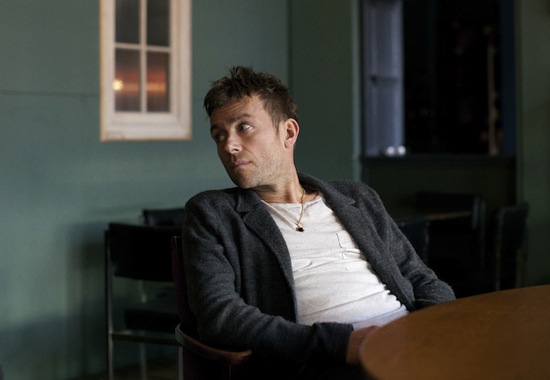
This part of West London has been your manor for a long time.
Damon Albarn: Oh yeah…nearly 25 years now.
Indulge me for a moment. The song you’ve said is central to this record, Hollow Ponds, is made more dramatic by you singing about how much the landscape has changed around that area. We watch modern life cutting your memories in half, literally; at the time that link road started to be built, you move West to another modern motorway.
DA: I did.
Is there something weird going on in the back of your brain about that?
DA: About roads? [laughs] Yeah, I guess there is. I mean, in America, songwriters write about highways all the time, and that doesn’t get questioned. It’s just that we just don’t call them highways!
Were you aware of the protests going on around Leytonstone at the time? You were in Blur by this point, but it was just before your career took off.
DA: I was aware of it a little bit because I lived in a squat on one of the roads that got completely obliterated, just round the corner from, oh what’s it called, a road that was at the heart of those protests, beginning with C…
Claremont Road?
DA: Yes, something like that. Just round from the end of Fillebrook Road, there was this whole terrace of lovely little Victorian houses, and I lived in one of those for about a year. They were literally knocking them down, you could hear that awful noise all the time. But I didn’t get involved in those protests, because I wasn’t really of that age… I didn’t see Leytonstone then as anything other than the part of London I knew from growing up. I didn’t want to be there, you know, I had none of that sort of nostalgia.
You would have been in your early to mid-20s, desperate for life to begin.
DA: Exactly. That’s what I wanted, yeah.
But now the nostalgia is back?
DA: Well, the memories, definitely.
Tell me about where you grew up.
DA: We lived in a very ordinary little terraced house. But inside the house, it was painted silver, and there were mad kind of plastic bright coloured blocks which were our furniture.
This is the influence of your mum and dad, I presume. [Damon’s dad was an artist, lecture and furniture designer, Damon’s mum a set designer at Theatre Stratford East.] I saw a great video of them recently on the Carnaby Echoes site, talking about the gallery in Kingly Street they used to run together.
DA: You know, it was a pretty zany house. It was pretty zany! All the bits that they hadn’t used in the Fun Palaces [the psychedelic installations made by Albarn’s father’s company in the late ’60s] were everywhere. I loved it.
And on the Carnaby Street clip, your Dad hints about the presence of naked women dancing…
DA: [laughs] Well…they did used to have some great parties! I was allowed to come down sometimes, and I used to love that. And, I mean, I know my daughter’s had the same sort of thing. Kids love hanging out with grown-ups when they’re enjoying themselves. It’s a world they’re not usually not allowed into, so introducing them to that is really important. I mean, I wasn’t allowed into my parents’ parties all the time, but all in all, I had a great childhood.
It must have felt quite liberating – but possibly slightly nerve-wracking – to be filmed by the BBC in your old street.
DA: We didn’t film outside my actual house. I’d been there quite a few times before we filmed, just to see it. It’s such a personal, strange thing to do…to just stand outside, trying not to get noticed by anyone. And then the day we were filming, the door opened, and I thought, "Oh God"… and this very elegant, conservatively-dressed Muslim girl in her mid-20s came out. And straightaway she went, "Hello Mr. Albarn". And I went, "Oh!" She said, "I know you used to live here," and I went, "How do you know that?" Then she told me that when she was a little girl, around 1995, another film crew came round and she remembered her Mum wouldn’t let them in. "And she won’t let you in now," she said. [laughs] Which is understandable! Then at the end she went, "Good luck, I know you’ve got a new record coming out" – she knew everything, basically, about me. I thought that was really, really nice, so I said, "Give my love to the house", and she said, "I will do." In that little moment, I felt that connection with the house and the people in there…I was really pleased about that.
What compelled you to go back in the first place? The mid-life crisis you refer to, only with a slight bit of irony, at the end of the Culture Show?
DA: [smiles] Well, I thought the whole idea of doing a solo record…you know, if you’re going to do a solo record, it’s got to be about you. Even though I’ve written a lot of songs from a personal point of view, I haven’t written, maybe, a record as autobiographical – or narrative-led – as this. In the sense of telling lots of little stories about growing up…although sometimes a lot of them are distilled into two-line stanzas.
Well, indeed… Everyday Robots isn’t exactly a direct record. It’s very abstract at times, like in ‘Hollow Ponds’. The dates flow through the headphones like you’re flicking through the pages of a photo album, or a series of snapshots from your life. The heatwave, ’76…the A12 link road, ’91…
DA: I think the role or the objective of a good songwriter is to write something incredibly personal and private that somehow becomes more universal. I mean, I always use this example, and it’s a ridiculous comparison, really, but when Tammy Wynette wrote ‘D.I.V.O.R.C.E.’, it was a very personal thing to her, but now it’s become something everyone can take on. I can only dream of having songs that have that kind of universal appeal, but the principle’s the same.
Just to go back to ‘Hollow Ponds’ for a moment…you take us to the Black Sea in 1979 too. You spent time in Turkey when you were young – that would’ve been quite an unusual experience.
DA: Yeah. I went with a friend of my parents when I was nine – I spent a month there. And I had a lot of time on my own, which might sound quite sort of irresponsible now, but I spent a lot of time just walking around towns like Istanbul and Izmir on my own. I mean, we’re talking the Midnight Express kind of era! But I never encountered any weirdness, you know. It’s a testament to the nature of people that I was able to walk around, and I remember having some very profound experiences being invited into mosques and praying with the men. Me being a little, blonde nine-year-old – it’s kind of mad.
Do you like being isolated, in that sense? Have you liked burrowing back into those personal experiences?
DA: I’m enjoying it now it’s done, and people seem to be at least sort of listening to it, and I’m enjoying that. But the process of getting some of it out was quite … well, quite alarming.
In what way?
Well, in the song ‘The History Of A Cheating Heart’, for example…just the singing of those title words in themselves. They can imply so much. And, you know, I’ve got relationships with family and friends in that, and everyone can probably read something into it. I was setting out quite a raw stall.
Lines like "I do love you, but it’s just a fact that the history a cheating heart is always more than you know", I’m presuming? When you listen to that song do you think, argh, I’m trying to say something to somebody here…
DA: Yeah. I am.
To who, exactly?
DA: [Fixes eye contact] I’m probably trying to say it to quite a few people. And also accepting that any kind of betrayal, whatever it is, is never as simplistic as it might seem.
And how would you want these people to respond to your words? She says knowing you’re not going to tell me who the subjects are…
DA: Well, no, because that particular song has a duality about it. It’s about me being on one side, being the victim of that, and then me being the antagonist or the…what word am I grappling for here…
Instigator?
DA: Yeah, yeah, exactly.
Why did you feel like you had to address those feelings in the song?
DA: I don’t know. It’s just like a lot of stuff…this felt like the right time to get it out there. I mean, there’s the line in ‘The Selfish Giant’ too – "It’s hard to be a lover when the TV’s on and there’s nothing in your eyes". I found that incredibly difficult to sing. But Richard was like, "No, you have got to sing that song, that line, that’s a really strong line". And I was going, "Yeah, I know, but my partner’s not very impressed with that line, understandably". But it’s not even about that…it can be perceived as that, but it’s much more sort of abstract than that, really. The record is peppered with these really quite sort of jarring comments.
Are you being honest to the point of being brusque?
DA: Yes, exactly.
Well, relationships are often like that.
DA: They are, they are. And I just thought, "It’s time that I was like that" in song. I’ve always tried to not involve too much of my personal life in my professional life before.
That’s true – you’ve written in character a lot, most famously in your Blur days. What’s changed?
DA: I don’t know. Maybe my personal life is much better now, so I feel safer doing it. I feel safer talking about my drug addiction and stuff in the past.
Drugs come up a few times on this record, like heroin in ‘You And Me’ – the line about the tin foil and the lighter. You first talked to John Harris about that in The Guardian a few years ago.
DA: Well, drugs do come up, and I did use them… but you know. I have got a 14-year-old daughter these days, and my life is very different now. I still like the odd night out, of course, but there’s no sort of habitual behaviour any more. I also don’t mind talking about that stuff if I’m allowed to present a balanced and intelligent argument about it – as I have done – but if it just becomes a headline, then it’s just fucking bollocks. Yet again, the headline’s not the story, ever.
It’ll be odd for some fans to think of you as a father of a 14-year-old.
DA: I know. I’m a dad – and I’m a dad with a teenager. And a girl!
How’s that working out?
DA: It’s great, you know, she’s fantastic. And we get on really well, so I can’t ask for anything more, really.
Do you find that influences you? Does it help to see the world through the eyes of somebody you’ve brought into it?
DA: Yeah, it really does. Another rich vein on this record is my anxiety about, or rather the existential problem I have with the nature of technology – whether it is making us more aware of ourselves or more distant from ourselves, spiritually. Part of that came from the world she knows.
This comes across clearly on ‘Photographs (You Are Taking Now)’… in lines like "when the photographs you are taking now, are taken down…press send". There’s a robotic, slightly chilling distance between the person having the experience and the image they’re trying to create.
DA: Yeah.
And you have a sample on that track too: a man saying "This is a precious opportunity… be aware of the photographs you are taking now." Who’s that?
DA: That’s Timothy Leary. [The song]’s all about what that mad sort of seer kind of warned us of in the 60s!
Do you find yourself getting lost in that world of technology? Are you trying to distance yourself from it?
DA: I find myself equally comfortable outside of it and in it, and in a way that’s the problem. I maybe distrust myself in it more than I do out of it. My true nature is one that distrusts it, but I do embrace it.
What are the bad things about it?
DA: For someone like me, there can be a tendency to be drawn towards more self-obsessive behaviour, because the online world is there all the time and it’s changing all the time. It’s also defined by all these strange kinds of numbers that somehow determine our sense of popularity or worth, which is really odd. I mean, it was always thus in a way, but now it’s so fucking insane.
I’ve come off Twitter quite a bit because of how depressing it feels to be on there sometimes.
DA: Well, exactly. Social networks are drugs. And I’ve never been on Twitter, I’m not on any social network. I think I’d go mad if I did that.
You wouldn’t like to notice how many followers you’ve lost or gained…
DA: Yeah, exactly. And what is that, what does that mean? No one of any worth can ever really compete with the more frivolous Twitterers, because if you’re saying something interesting or nuanced, it’s less likely that people are going to follow you. I mean, this is another thing which I think we’re in danger of creating…there’s the idea of the Internet as the great democratiser of everything, but it’s actually like a 24-hour kind of Big Brother dividing us all, endlessly, into sub-cultures and niches. It’s isolating.
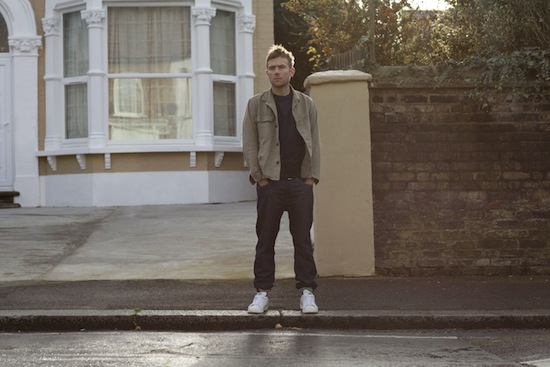
You’ve been writing about isolation and these little structures that make us feel separate from each other for years. To me, ‘The Universal’ has always sounded like a song about this, and about how virtual life could be… and it was only written in 1994, a year after the internet was invented. Lines like "the universal’s free/You can find it anywhere…no one here is alone, satellites in every home" make it sound weirdly prophetic now. You can take other lines out of The Universal too about our desperation to be together these days, but not necessarily with any depth of engagement. When I saw you play it as the encore with Blur in Hyde Park in 2009, there were fans singing along, "though the words are wrong"…
DA: Yeah, yeah. It has felt really powerful singing that song since, you know, because what I was trying to express really did come true. And I suppose that’s where my songs kind of generally exist, in those films where it goes, "somewhere in the near future!" I think that’s the world where I kind of like to inhabit. I’ve put a few The Good, The Bad and the Queen songs into my new live set too, all these songs referring to flooding and weather changes..that’ll be weird after what happened earlier this year. It’s not that I’m being prophetic or anything [laughs], it’s just I don’t think these are subjects that people generally sing about. I mean, [Gorillaz’] Plastic Beach was all about pollution, and plastic and food chains too. But you know, Pharrell Williams doesn’t sing about the fact that we’re all going to be eating jellyfish. He sings about being happy, because that’s a subject people are comfortable with – a wonderful sentiment, yes, but very empty in essence. That’s why his music is perceived as pop music, while I’m perceived as being ever-so slightly left-field. And maybe that’s just where I always will be.
But ‘The Universal’ also has the line in it about the future being sold…and my Mum probably knows the tune best from it being on the British Gas advert. How do you defend that?
DA: [thinks] What do I think about it? Well … it’s been there for so long in that place, and once it’s been around for long enough in the same place, people don’t even think about it any more.
Some people might say that selling your song in that way compromises the things you want to talk and sing about. Does it?
DA: Compromises it? No, and do you know why? Because I made sure that they weren’t allowed to use any singing, or any lyrics [in that advert]: they just used the brass on it that went diddy-diddy. That’s all they do. So, you know, it’s just an instrumental of a tune. I never allowed them to use the actual words. And the fact that the music industry has changed in the way that it has…I mean, there are very few people that consider not having their music put out in that way these days. I mean, the industry’s different now. It is entirely different.
[Later I hear from several music industry sources that Albarn allowed The Universal to be synced to make money for his bandmates – which gives a different edge to the debate, whichever way you slice it.]
And last year you spent a week recording with Blur, but that didn’t work out. After that, you were suddenly releasing a solo record. How did that happen?
DA: Well, you know, [the Blur stuff] did work out. It’s just that we… [sits up]…well, it was like this. I finished this record just as we were starting to do a big chunk of the goodbye-after-the-goodbye-after-the-goodbye tour of the world. We found ourselves in Hong Kong, because our original promoter in Tokyo had gone bankrupt. We’d built all these dates around there in Indonesia and Hong Kong, and it wasn’t economically sensible to fly everyone back…so we had an empty week, so I thought, "Well, OK, why don’t we just go in a studio and go and see what happens?" It wasn’t something that was particularly planned, it was quite a spontaneous thing. And we did loads of tunes.
And it was good?
DA: Yeah. So when we did the next gig, I was excited, all like, "We’ve been in the studio for a week, everyone," and then that just goes round the world. And then when it doesn’t happen after that, I get cast as being, "Oh Damon doesn’t want to do anything". That’s just not the way it is at all.
William Orbit tweeted that you’d halted the recording, and said that he wouldn’t work with you again…
DA: [sadly] Well, I don’t understand why William said that.
He also ranted on Facebook about Madonna in 2012, so he’s got form on that front.
DA: Well, I really don’t know what happened with William there. I mean, I love him dearly, and I don’t quite understand why he made those comments, but, you know, nonetheless, he did.
You’ve said recently that you find recording with Graham really easy.
DA: Yeah! It made me think about process of writing this record, which was like going back to our very early days, and I want to do more of that. But the way I feel at the moment… hopefully, if people like this record, I will be allowed to make a few more solo records. This is what I’m enjoying now, and I’ve got a lot of other bits of my life to talk about. I see the solo records as being an archaeological dig of my own past, in a way, and I’ve only just unearthed a few little interesting bits, cleaned them off and filed them! [laughs] I would like to think I’ve got a bit more to say.
Everyday Robots is out on Parlophone Records on 28 April

